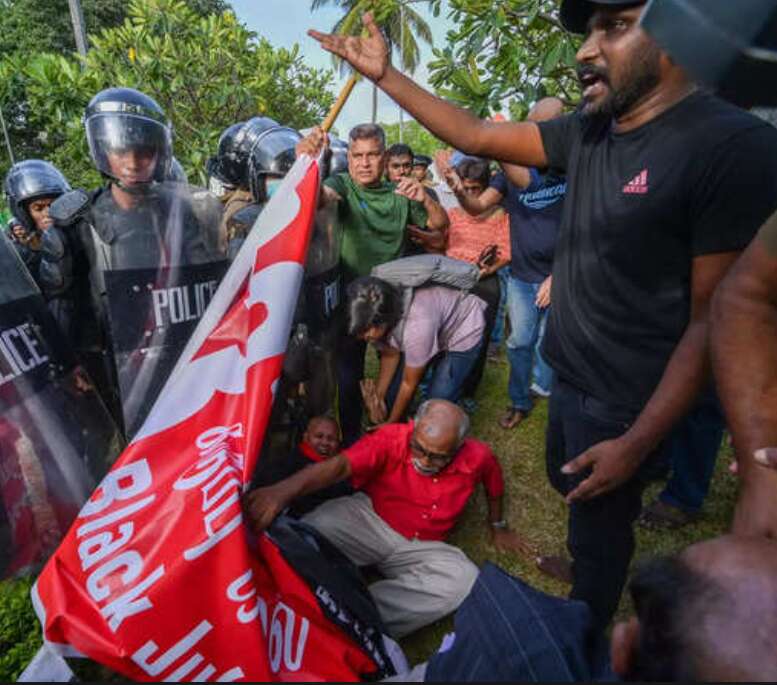40 Years Later, Sri Lanka Remembers the Horrors of the Anti-Tamil Pogrom - Justice and Reconciliation Still Elusive
As Sri Lanka's anti-Tamil pogrom in 1983 marks it's 40th tragic anniversary, the country continues to struggle for justice and reconciliation in the country.
Sri Lanka Marks the 40th Anniversary of Anti-Tamil Pogrom July 23 marked the 40th anniversary of Sri Lanka's anti-Tamil pogrom in 1983, and a somber remembrance was held near the Borella Cemetery in Colombo.
However, the peaceful gathering was disrupted by a group of angry young men associated with an extremist Sinhala nationalist outfit. These disruptors hurled insults and derogatory terms at the participants, labeling them as terrorists.
This incident echoed similar scenes witnessed just two months prior during a commemoration event for the end of the civil war. Despite a heavy police presence, the activists were asked to disperse instead of the disruptors.
For families of Tamil victims killed in the violence, remembering the events of 1983 has been incredibly difficult, and forgetting them is even harder. Cheryl Arnold, who was 13 years old at the time, vividly recalls the week of July 1983. The tension in her city was palpable, and acts of violence seemed imminent.
Her own home was targeted by a mob, and her brother narrowly escaped harm. Eventually, her family sought refuge in a church turned shelter for those affected by the violence. Ms. Arnold's father fell ill due to the trauma and loss, and their family was forced to separate, seeking asylum in different countries.
Even being half-Tamil exposed Ms. Arnold to discrimination and suspicion when trying to visit her ailing father. While Tamils in Sri Lanka had faced periodic violence in the past, the 1983 pogrom marked a turning point in the country's history. Thousands of lives were lost, and numerous individuals were displaced.
The events of "Black July," as this period is often referred to, propelled the festering ethnic conflict into a full-blown civil war that would last for decades. The legacy of 1983 continues to impact the lives of every Tamil individual, leaving lasting scars and changing the course of history.
The violence and destruction of 1983 have been meticulously documented by human rights organizations. The Civil Rights Movement of Sri Lanka described the incidents as a "holocaust" in a report, highlighting the targeted attacks on Tamils and the massacre of Tamil prisoners at Welikada prison.
However, the dominant narrative surrounding the 1983 violence downplays its significance, framing it as a spontaneous response to the killing of soldiers by the LTTE. Activist groups, such as the University Teachers for Human Rights-Jaffna, argue that the violence was premeditated and part of a larger pattern of discrimination against Tamils.
Regrettably, no government has taken responsibility or condemned the mass atrocity that took place in 1983. There has been no justice for the victims, and no perpetrators have been held accountable. This absence of justice is deeply felt by those who continue to suffer the effects of the violence.
Cheryl Arnold, recognizing the impact of the 1983 pogrom, acknowledges that it is just one of many injustices experienced by various communities in Sri Lanka. She believes it is crucial to recognize and address all forms of injustice in the country's history.
As Sri Lanka marks the 40th anniversary of the anti-Tamil pogrom, it serves as a stark reminder of the violence that still haunts the nation. The quest for justice and reconciliation continues, and the hope for a more inclusive and tolerant Sri Lanka remains.




